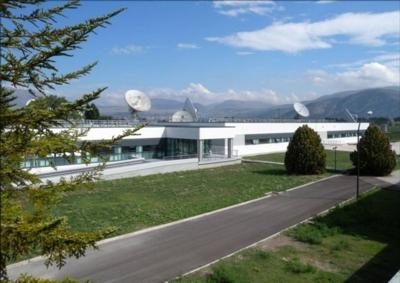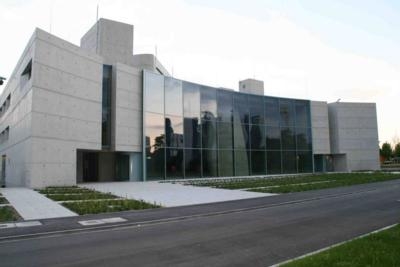Tue, Aug 22, 2017
Interlink Sites Between Centers Declared Approved For Use
Early in July the Inter-site links between the two Galileo Ground Control Centers in Oberpfaffenhofen (Germany) and Fucino (Italy) were declared fully functional and approved for use by the Galileo Security Accreditation Board. This major milestone within the Galileo Ground Control System (GCS) project means that all the received satellite telemetry data and the Key Management devices that secure the communication channel between the satellites and the ground the Galileo Ground Control Operations can now be fully shared between the two centers.

Approval of this link is an essential step in the program. It marks the transition to a fully redundant Control Centre solution, even in the event of an emergency or failure at one of the centers, there is now the capability to continuously control the Galileo constellation from the other.
Galileo is Europe’s own global satellite navigation system, providing positioning, navigation and timing services to Europe and the world. It currently comprises 18 operational in orbit satellites, eight more that are built but still to be launched (four of these on an Ariane 5 launch in December) and another eight now on order. The system has been providing Initial Services since December 2016, providing high accuracy navigation signals to anyone with a ‘Galileo-ready’ chipset.
The Galileo Ground Segment is one of the most complex Europe has ever undertaken, having to achieve strict levels of security and safety whilst continuously monitoring and controlling all the satellites in the Medium Earth Orbit (MEO) constellation. Many of the routine satellite contacts are now fully automated.

Airbus in Portsmouth has been the prime contractor for the Galileo Ground Control Segment (GCS) from its inception to the present day, with responsibility for the GCS facilities located at both Oberpfaffenhofen and Fucino and the six associated Telemetry, Tracking and Command (TTC) stations. GCS is responsible for the day-to-day monitoring and control of the four In-Orbit Verification (IOV) satellites and the 12 Full Orbit Constellation (FOC) satellites and is ready to control all the FOC satellites as they become available. For FOC, Airbus has introduced more modern capabilities, such as the use of Virtualisation techniques, to both allow a more efficient use of hardware and also to reduce the impact of obsolescence, by allowing the running of legacy Operating System software on upgraded servers. Looking beyond the current FOC contract, the Airbus GCS team is ready to introduce yet more innovative techniques to better support future operations of the current and next generation Galileo
satellites.
(Images provided with Airbus news release)
More News
Option Approach An approach requested and conducted by a pilot which will result in either a touch-and-go, missed approach, low approach, stop-and-go, or full stop landing. Pilots >[...]
"Emirates is already the world's largest Boeing 777 operator, and we are expanding our commitment to the program today with additional orders for 65 Boeing 777-9s. This is a long-t>[...]
(Pilot) Reported That There Was A Sudden And Violent Vibration Throughout The Airplane That Lasted Several Seconds Analysis: The pilot was returning to his home airport at an altit>[...]
“This recognition was evident during the TBMOPA Annual Convention, where owners and operators clearly expressed their satisfaction with our focus on customer service, and enc>[...]
Overhead Maneuver A series of predetermined maneuvers prescribed for aircraft (often in formation) for entry into the visual flight rules (VFR) traffic pattern and to proceed to a >[...]
 ANN's Daily Aero-Term (11.19.25): Option Approach
ANN's Daily Aero-Term (11.19.25): Option Approach Aero-News: Quote of the Day (11.19.25)
Aero-News: Quote of the Day (11.19.25) NTSB Final Report: Sting Sport TL-2000
NTSB Final Report: Sting Sport TL-2000 Aero-News: Quote of the Day (11.20.25)
Aero-News: Quote of the Day (11.20.25) ANN's Daily Aero-Term (11.20.25): Overhead Maneuver
ANN's Daily Aero-Term (11.20.25): Overhead Maneuver




